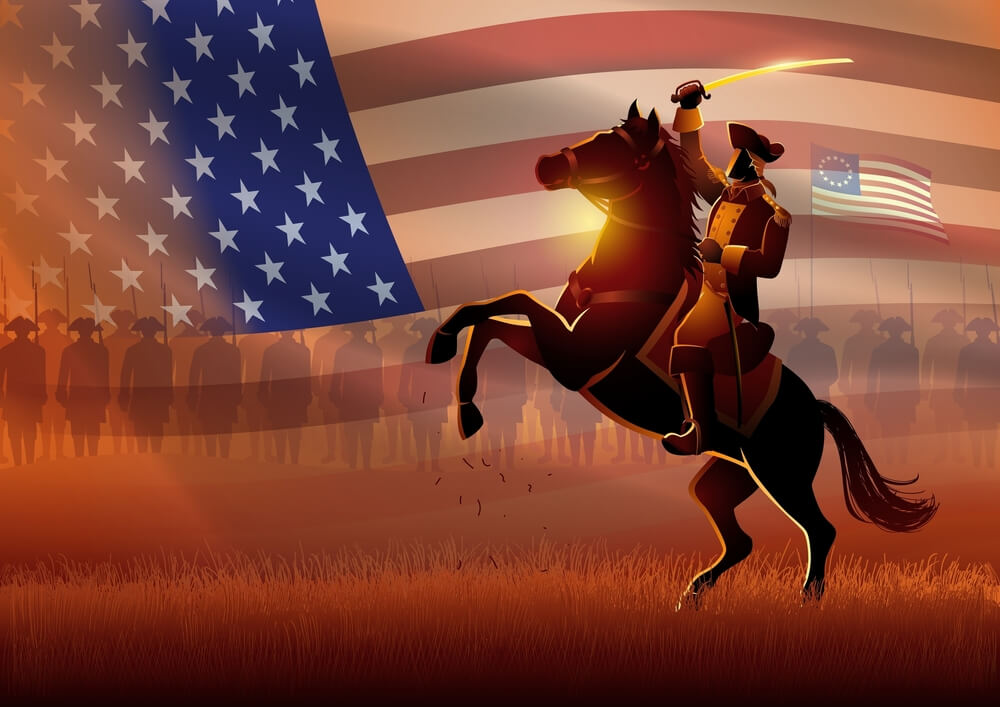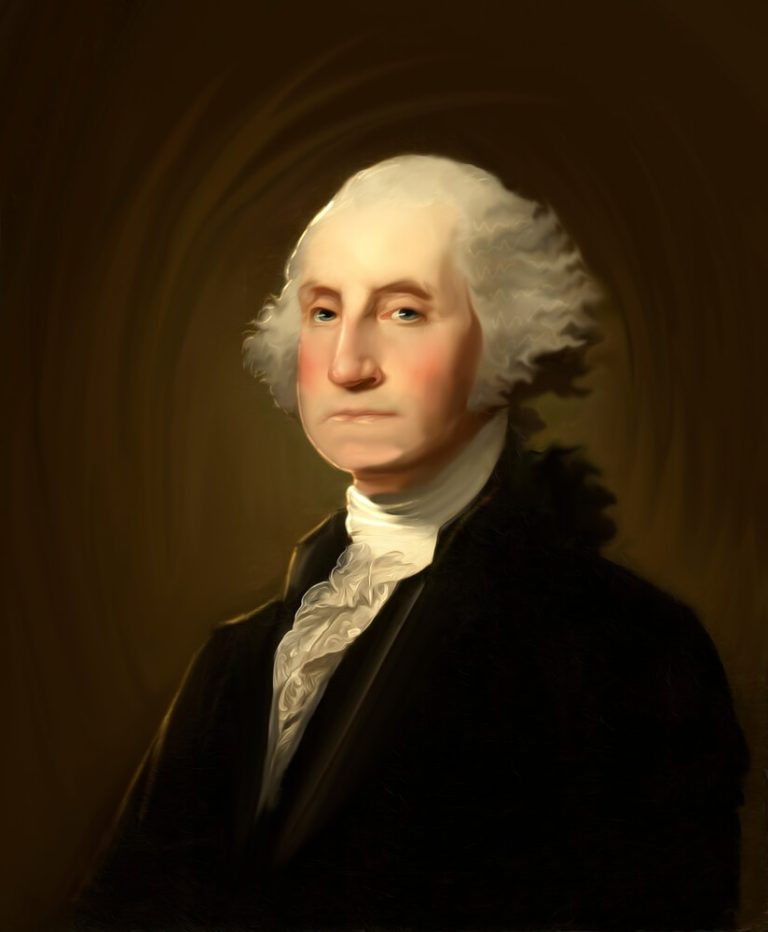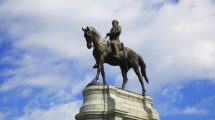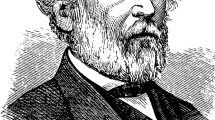George Washington, the “Father of His Country,” is a key figure in American history as its first president. Rising from colonial Virginia to military leader during the Revolutionary War, he secured independence and set precedents for the U. S. As president, he faced various challenges and offered enduring advice in his Farewell Address. This exploration examines Washington’s life, career, and lasting legacy in America’s founding narrative.
The Life and Early Career of George Washington
George Washington, often hailed as the “Father of His Country,” was born on February 22, 1732, in Westmoreland County, Virginia. His early life laid the foundation for his future role as a pivotal figure in American history. Washington grew up in a colonial family with moderate wealth and was educated at home by private tutors. This education provided him with essential skills in mathematics and surveying, which would later serve him well.
Washington’s early career began at the age of 16 when he started working as a surveyor for Lord Fairfax, mapping out lands in Virginia’s western frontier. This experience not only honed his skills but also gave him a deep understanding of the American landscape (knowledge that proved invaluable during his military career).
By his early twenties, Washington had joined the Virginia militia and gained recognition for his leadership during the French and Indian War. His bravery and strategic acumen during this conflict earned him respect among peers and superiors alike. These formative experiences were crucial in shaping Washington into a leader capable of guiding a fledgling nation through its fight for independence.
As we delve into George Washington’s biography, it becomes clear that his early life and career were instrumental in preparing him to become America’s first president. This role would define his legacy as one of history’s most influential figures.
The Role of Washington in the American Revolutionary War

George Washington’s pivotal role in the American Revolutionary War is a testament to his exceptional leadership and strategic acumen. As the commander-in-chief of the Continental Army, Washington faced numerous challenges, from resource shortages to managing an inexperienced militia. Despite these obstacles, his steadfast determination and innovative tactics solidified his reputation as a revolutionary war hero.
Washington’s leadership was instrumental from the very beginning of the conflict. Appointed as the general of the Continental Army by the Second Continental Congress in 1775, he quickly set about transforming a disparate group of colonial militias into a more cohesive fighting force. His ability to inspire and maintain morale among his troops was crucial during difficult times, such as the harsh winter at Valley Forge.
One of Washington’s most notable achievements came with his daring crossing of the Delaware River in December 1776. This surprise attack on Hessian forces at Trenton demonstrated not only his military prowess but also his willingness to take calculated risks that could turn the tide of war in favor of American independence.
Throughout the war, Washington’s strategic insight allowed him to outmaneuver British forces repeatedly. His decision to adopt guerrilla tactics and avoid large-scale confrontations unless favorable conditions were present proved effective against a superior British army. This approach culminated in victory at Yorktown in 1781, where combined American and French forces successfully besieged British General Cornwallis’s troops, ultimately leading to British surrender.
In summary, George Washington’s role as a military leader during the American Revolution was integral to achieving independence for America. His legacy as an astute general and inspirational commander continues to be celebrated today as an enduring symbol of perseverance and leadership under pressure.
Washington’s Presidency
George Washington’s presidency was a foundational period in American history, characterized by the establishment of numerous precedents that would guide future leaders. As the first president of the United States, Washington faced the monumental task of setting up a new government under the Constitution. His leadership style and decisions laid down policies that would shape the office of the presidency for generations.
One of Washington’s most significant contributions was his approach to forming a presidential cabinet. Understanding that he could not govern alone, he appointed key figures like Thomas Jefferson as Secretary of State and Alexander Hamilton as Secretary of Treasury. This move established a precedent for future presidents to rely on a team of advisors to help manage various aspects of governance.
Washington also set important precedents through his policies and actions. He emphasized neutrality in foreign affairs, especially evident in his Neutrality Proclamation during conflicts between France and Britain. This policy underscored his belief in avoiding entanglement in European wars, setting a standard for future administrations.
Moreover, Washington’s decision to step down after two terms established an unwritten rule limiting presidential tenure, which later became codified with the 22nd Amendment. His voluntary departure from power reinforced democratic principles and underscored his commitment to republican ideals over personal ambition.
Through these actions and more, George Washington’s presidency set enduring standards that continue to influence how presidents approach their role today. His ability to navigate uncharted political waters with foresight and restraint remains an essential part of his legacy as America’s first leader.
The Challenges Faced During Washington’s Administration
George Washington’s presidency was a defining period in American history, marked by numerous challenges that shaped the future of the United States. As the first president, Washington faced unprecedented obstacles both at home and abroad.
One of the primary challenges of Washington’s presidency was establishing a foreign policy for a nascent nation. The young United States found itself caught between European powers, particularly Britain and France, who were often at odds. Navigating these international waters required diplomatic finesse to maintain neutrality while protecting American interests. Washington’s Neutrality Proclamation of 1793 was a significant step in asserting this stance, aiming to keep the nation out of European conflicts.
Domestically, Washington dealt with several pressing issues that tested his leadership. The Whiskey Rebellion of 1794 highlighted tensions between federal authority and local resistance; farmers in western Pennsylvania protested against an excise tax on whiskey, challenging federal power. Washington’s decisive response set a precedent for federal enforcement of laws (mobilizing troops to quell the rebellion).
Additionally, economic challenges loomed large during his administration. Alexander Hamilton’s financial plan aimed to stabilize the economy but sparked debate over states’ rights versus federal control. The establishment of a national bank and assumption of state debts were contentious topics that revealed deep political divisions.
Washington’s presidency laid down foundational policies and practices for future administrations while navigating complex domestic and international landscapes.
Washington’s Farewell Address to a Young Nation
George Washington’s Farewell Address remains one of the most significant documents in American history, offering timeless presidential advice to a young nation. Delivered in 1796, as Washington prepared to step down from the presidency, the address was not spoken publicly but published in newspapers, allowing citizens across the fledgling country to absorb its insights.
The core of Washington’s farewell address summary revolves around three primary themes: unity, foreign policy, and political parties. He emphasized the importance of national unity, urging citizens to prioritize their identity as Americans over regional loyalties or political affiliations. This call for unity was crucial at a time when sectional tensions were beginning to surface.
In terms of foreign policy, Washington advised against forming permanent alliances with foreign nations. He believed that while economic relations were beneficial, entangling alliances could drag the United States into unnecessary conflicts. His cautionary stance on foreign involvement shaped American diplomacy for decades.
Lastly, Washington warned against the divisive nature of political parties. He feared that partisan politics could lead to factionalism and undermine the government’s ability to function effectively. Although political parties became an inevitable part of American politics shortly after his presidency, his concerns about their potential negative impact on governance remain relevant today.
The legacy of George Washington’s farewell speech endures as a guiding document that continues to offer wisdom and insight into maintaining a stable and unified nation amidst changing times and challenges.
The Enduring Legacy of George Washington as America’s First President
George Washington’s enduring legacy as America’s first president continues to shape the nation in profound ways. Often referred to as “The Father of His Country,” Washington set numerous precedents that have influenced the office of the presidency and American governance as a whole. His leadership style, characterized by integrity, humility, and a commitment to democratic principles, established a standard for future leaders.
Washington’s historical impact is evident in his decision to step down after two terms, reinforcing the importance of peaceful transitions of power and preventing any drift toward tyranny. This tradition became a cornerstone of American democracy and was later codified in the 22nd Amendment.
Today, George Washington’s legacy can be seen in various aspects of modern America. His emphasis on unity over partisan division resonates strongly in contemporary political discourse. As debates about national identity and governance continue to evolve, Washington’s influence serves as a reminder of the foundational values upon which the United States was built.
Moreover, his vision for economic independence and neutrality in foreign affairs laid groundwork that still informs U.S. policy decisions today. By prioritizing these principles during his presidency, Washington helped establish an enduring framework for national stability and growth.
In examining George Washington’s legacy today, it is clear that his contributions extend far beyond his lifetime; they remain integral to understanding both America’s past achievements and its ongoing journey toward realizing its founding ideals.
Reflecting on George Washington’s Role in Shaping America’s Future
As we reflect on George Washington’s monumental role in shaping America’s future, it’s essential to appreciate the breadth and depth of his influence. Washington’s leadership during the Revolutionary War, his pivotal contributions as the first President of the United States, and his steadfast commitment to democratic principles laid a foundation that continues to guide the nation. His decision to step down after two terms set a precedent for peaceful transitions of power, reinforcing the importance of democracy over dictatorship.
Washington’s vision for America was one of unity and prosperity, advocating for a strong federal government while respecting states’ rights. His farewell address warned against political factions and foreign entanglements and provided advice that remains relevant today. By prioritizing national interests above personal gain, Washington exemplified selfless leadership.
In conclusion, George Washington’s legacy is not merely a chapter in American history but an ongoing influence on its governance and ideals. His foresight in establishing enduring principles has ensured that his impact resonates through generations, reminding us of the values upon which America was built.


